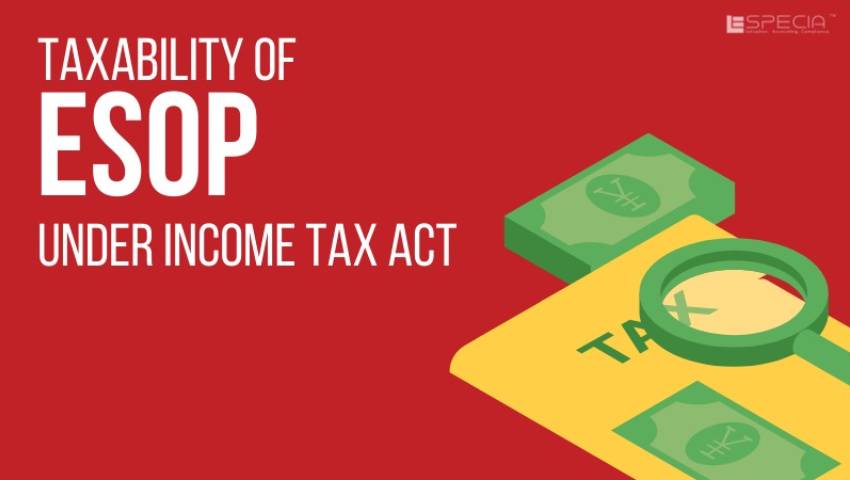
- 19/12/2024
- MyFinanceGyan
- 186 Views
- 6 Likes
- Finance, Investment, Tax
Demystifying ESOP Taxation in India: A Comprehensive Guide
Employee Stock Option Plans (ESOPs) have become a popular way for companies to reward employees by giving them a share in the company’s success. But to truly benefit from ESOPs, it’s essential to understand their tax implications. Let’s break down ESOP taxation in India in a simple way.
What are ESOPs?
ESOPs, or Employee Stock Option Plans, allow employees to buy company shares at a fixed price (called the exercise price) within a specific period. This not only gives employees a stake in the company but also aligns their interests with the company’s growth.
Other Stock-Based Benefits: While ESOPs are common, some companies also offer other stock-based benefits:
- Restricted Stock Units (RSUs):
- RSUs are shares given to employees after meeting certain conditions, like completing a set number of years with the company.
- Employees get these shares for free once the conditions are met.
- Employee Stock Purchase Plans (ESPPs):
- ESPPs let employees buy shares at a discounted price using a part of their salary.
- Unlike ESOPs, where the price is fixed, ESPPs offer a discount on the market price.
- Phantom Stock Plans:
- These don’t involve actual shares. Instead, employees get cash rewards based on the company’s stock value.
- Stock Appreciation Rights (SARs):
- Employees receive the increase in the company’s stock price over a set period, but no actual shares are given.
Key Terms You Should Know:
- Grant Date:The date when the company offers stock options to employees.
- Vesting Period:The time employees need to stay with the company to own the granted shares.
- Exercise Price:The fixed price at which employees can buy the shares.
- Exercising:The act of buying the shares at the exercise price.
- Vesting Schedule:A plan showing how many shares employees can own over time (e.g., 25% per year for 4 years).
- LTCG and STCG:Long-Term Capital Gains (LTCG) and Short-Term Capital Gains (STCG), which depend on how long the shares are held.
Taxation at Different Stages:
- Grant Stage: No tax is applicable at this stage.
- Vesting Stage: No tax is applicable here either.
- Exercise Stage:
- Tax comes into play here.
- The difference between the market price of the shares and the exercise price is treated as a part of your salary (called a perquisite).
- This amount is taxed as per your income tax slab.
- Sale Stage:
- Tax depends on how long you hold the shares before selling them:
- Short-Term (less than 24 months for unlisted shares/12 months for listed shares):Gains are taxed as per your income tax slab.
- Long-Term (more than 24/12 months):Gains are taxed at 12.5%.
- Tax depends on how long you hold the shares before selling them:
Employer’s Role in Tax Deduction: When you exercise your ESOPs, the employer deducts the tax on the perquisite amount. This affects your salary for that month. However, eligible start-ups have special rules that allow them to delay this tax deduction for up to 5 years or until certain conditions are met.
Reporting in Tax Returns: If you hold shares, especially in unlisted companies, you need to disclose details like the company’s name, PAN, and the number of shares held in your income tax return. For shares in foreign companies, additional reporting is required in forms like Schedule FA and Schedule AL.
Foreign Stock Options and Taxation: Shares from foreign companies are considered unlisted shares in India. They may attract double taxation if both the home and foreign countries tax the gains. However, Double Taxation Avoidance Agreements (DTAA) can help you get tax credits.
Key Takeaways:
- ESOPs and similar stock benefits can boost your wealth and connect your success to your company’s growth.
- Taxation occurs at different stages—exercise and sale being the most important.
- Understand the tax rules and plan accordingly to make the most of your ESOPs.
Conclusion: ESOPs are a fantastic addition to your compensation, fostering a sense of ownership. However, to fully benefit, you need to be aware of the tax implications at every stage. Always consult a tax expert to make informed decisions and optimize your financial outcomes.
Disclaimer: The information shared here is for educational purposes and not intended as financial advice. Always consult a professional for personalized guidance.



